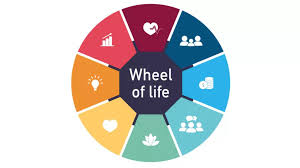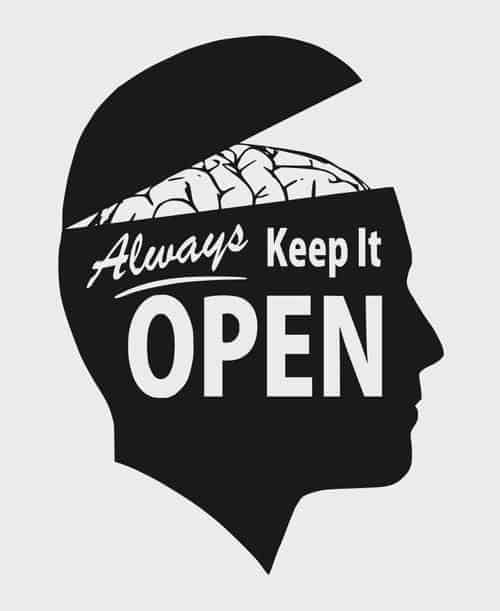Introduction.
Self-reflection is the gateway to self-improvement, enabling a person to understand their inner self more deeply. Conscious awareness—the ability to observe one's thoughts, feelings, and behaviors with clarity—transforms this understanding into growth. By developing conscious awareness through self-reflection, individuals can create intentional change and reach their full potential. This article explores how self-reflection and conscious awareness drive personal development, with key insights and examples.
1. Understanding Self-Reflection and Conscious Awareness
- Explanation: Self-reflection is the practice of looking inward to understand one’s experiences, beliefs, and actions. Conscious awareness, on the other hand, is the ability to observe these reflections without bias. Together, they help reveal patterns and motivations, forming the foundation of self-improvement.
- Key Words: introspection, observation, self-analysis
- Example: After a challenging day, take a few minutes to think about what triggered certain emotions or reactions. This awareness allows for a better understanding of your behaviors and thoughts.
2. Cultivating Mindful Observation
- Explanation: Mindful observation is about staying present in the moment, observing experiences as they happen without judgment. This helps in identifying thoughts and emotions as they arise, enabling self-awareness.
- Key Words: mindfulness, present moment, non-judgment
- Example: During a stressful conversation, notice your physical and emotional reactions, like increased heart rate or anxiety. By observing these responses, you gain insights into how stress impacts you, helping you stay calm.
3. Identifying Personal Values and Beliefs
- Explanation: Personal values and beliefs shape our decisions and actions. Understanding these helps in aligning goals and behaviors with what truly matters, leading to a more fulfilling life.
- Key Words: core values, beliefs, alignment
- Example: If honesty is a core value, you’ll likely feel uncomfortable in situations where integrity is compromised. Reflecting on these feelings helps reinforce your commitment to authentic behavior.

4. Embracing Emotional Awareness
- Explanation: Emotional awareness involves recognizing and understanding your own emotions. This allows for better control of reactions and stronger connections with others.
- Key Words: emotion recognition, empathy, self-regulation
- Example: Notice if certain situations regularly make you feel anxious or frustrated. Understanding these emotional triggers enables you to manage stress and respond with clarity instead of reacting impulsively.
5. Challenging Limiting Beliefs
- Explanation: Limiting beliefs are deeply held assumptions that restrict potential. By identifying and challenging these beliefs, you can unlock greater personal and professional growth.
- Key Words: self-limitation, empowerment, belief transformation
- Example: If you believe you’re “not good at public speaking,” self-reflection allows you to question why you think that and explore the evidence against it, such as successful presentations you’ve delivered.
6. Setting Conscious, Intentional Goals
- Explanation: Conscious goals are those that align with your values and long-term vision. Setting these goals ensures that your efforts contribute to meaningful personal growth.
- Key Words: intentionality, goal alignment, purpose-driven
- Example: If health is a priority, a conscious goal would be to exercise regularly not just for fitness, but also to support mental well-being and increase energy for other life goals.
7. Practicing Self-Compassion in Growth
- Explanation: Self-compassion means being gentle with yourself during setbacks. It fosters resilience by treating mistakes as learning opportunities rather than failures.
- Key Words: kindness, resilience, growth mindset
- Example: If you miss a goal, instead of harsh self-criticism, practice self-compassion by reminding yourself that growth is gradual and that each experience contributes to learning.
8. Transforming Awareness into Positive Habits
- Explanation: Awareness is valuable only when it leads to actionable change. Building positive habits based on self-reflection helps maintain consistent growth and aligns daily actions with long-term aspirations.
- Key Words: habit formation, consistency, routine
- Example: If you realize that mornings are your most productive time, create a habit of dedicating the first hour of your day to priority tasks. This builds a structure that enhances productivity.

9. Enhancing Relationships through Conscious Communication
- Explanation: Conscious communication is about listening actively, empathizing, and speaking clearly. It strengthens relationships by fostering openness and mutual respect.
- Key Words: active listening, empathy, clarity
- Example: Practice paraphrasing during conversations to ensure understanding. When someone shares a concern, saying “I hear that you feel frustrated because…” shows empathy and prevents misunderstandings.
10. Practicing Gratitude to Foster Positivity
- Explanation: Gratitude helps shift focus from what’s missing to what’s present and valuable in life. Regular gratitude practice can lead to greater happiness and contentment, supporting overall well-being.
- Key Words: appreciation, positivity, life satisfaction
- Example: At the end of each day, write down three things you’re grateful for. Reflecting on these positive aspects shifts attention from challenges to the positive, helping you develop a more optimistic mindset.
Conclusion.
Moving from self-reflection to self-improvement involves more than awareness—it requires a commitment to action and transformation. Conscious awareness provides a clear understanding of one’s values, beliefs, and behaviors, while self-reflection reveals opportunities for growth. By identifying areas such as emotional triggers, limiting beliefs, and core values, individuals can make intentional choices that support meaningful change. Building positive habits, practicing self-compassion, and setting conscious goals are ways to transform self-reflection into purposeful action. Through conscious awareness and consistent effort, we not only improve ourselves but also create a fulfilling, balanced life aligned with our true potential.



You must be logged in to post a comment.